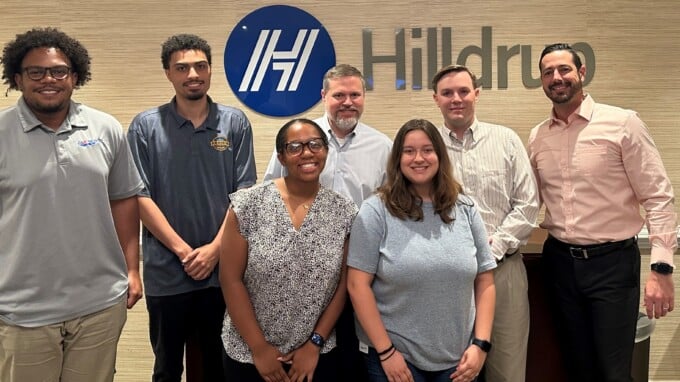Future-Proof Your Organization with an Effective Upskilling Program
Without question, advancements in technology create new opportunities for businesses, but they also pose some challenges – namely a widened skills gap. … Continued

Without question, advancements in technology create new opportunities for businesses, but they also pose some challenges – namely a widened skills gap. Already, experts are looking ahead to the next decade predicting workforce demands few businesses currently are capable of meeting. Some of these emerging skills will require new employees, but a more efficient option for others is training existing employees to handle the talent needs of a rapidly changing economy. This is a practice commonly known as upskilling, which businesses are adopting more and more for a number of benefits.
Preparing for the future
According to a recent McKinsey Global Institute report, by 2030 “roughly 14 percent of the global workforce” will likely need to shift to jobs focused on AI, automation and digitization. Taking steps now to upskill your organization’s workforce can go a long way toward minimizing the disruption this technological shift will bring. In fact, the same McKinsey report notes that 82 percent of executives believe retraining and upskilling/reskilling must be at least half of the answer to addressing future skills gap concerns.
Employee engagement
Understandably, employees want to work in a place where they feel appreciated and where their work is seen as directly impacting the overall success of the organization. Upskilling fosters an environment where people feel needed and valued and are shown that they are a part of the future plans of the company.
Furthermore, stagnation and lack of challenges in the workplace are issues that can plague a company culture. Showing staff that the organization also is enthusiastic about their professional development builds a culture of engagement, and upskilling programs are a good place to start.
Employee retention
People want to learn and grow in their places of employment, and a lack of learning opportunities is proving costly when it comes to organizations’ ability to retain talent. According to a recent survey, seven out of 10 U.S. workers would consider taking a new position with a company with an established and active employee development program. Upskilling programs promote an environment where further learning and exploration is celebrated, allowing organizations to better retain employees.
Talent acquisition costs
Hiring a new employee is both time consuming and expensive – especially for companies that don’t have a dedicated team of HR professionals. While the most obvious cost of a new employee is the salary, there are other factors – medical coverage, life insurance and tuition reimbursement, to name a few – that can raise that price even further.
The costs associated with hiring an employee vary depending on the position and other variables, but on average, SHRM estimates it as slightly above $4,000 per hire. To trim costs associated with talent acquisition, organizations increasingly are looking inward to fill voids. Upskilling allows organizations to save time and money associated with bringing on a new hire.
Best practices to keep in mind as you implement an upskilling program
Communicate professional development training opportunities and encourage employee participation
As already noted, it’s important to drive a culture of engagement. Just because an employee isn’t actively seeking out learning opportunities, it doesn’t mean there isn’t an interest. It’s not out of the ordinary for staff to develop tunnel vision and focus solely on the work ahead of them. An effective upskilling program should not just make people aware of educational opportunities, but also motivate employees to take advantage of them.
Leverage management to communicate development and learning opportunities to their direct reports. Additionally, communicate these training opportunities through the use of regularly scheduled “opportunity emails” and on company intranet platforms. Remember, it’s also important to communicate that these opportunities are just that: An opportunity to learn and develop professionally. They are not meant to seem like an added burden or an increased workload.
Create mentorship programs
Mentorship programs are an effective way to ensure the success of an upskilling program. Having mentors in place who are seen as resources and who will push staff to grow within the workplace is critical the program’s success. It fosters an environment where people feel comfortable to ask about, and pursue, learning opportunities.
These programs also provide staff with valuable insights into how senior members of the organization have risen to their positions, offer a more hands-on learning environment and build strong relationships between members of your organization at varying seniority levels.
Individualize employee development
Upskilling your team is something that’s aimed at creating a more well-rounded and engaged group, not one that feels added stress. The schedule and bandwidth of one employee almost always will differ from that of another. This means there’s no singular approach that will work for everyone in the organization. Having individualized professional development plans that are easily tailored to specific schedules, interests and workloads will ensure that staff doesn’t feel burdened by upskilling opportunities.
Additionally, having individualized plans is important because members of different business lines will have different wants and needs. For example, someone from the business analytics office might want to work on building their interpersonal communication skills, while conversely, someone in marketing could be interested in building their technical skills. Creating an environment where staff feels empowered to seek out learning opportunities that best suit them is important and is why individualized programs are necessary.
Both employees and organizations will be susceptible to the changing landscape of workforce needs as technology advances, but implementing an upskilling program now is a solid plan to prepare for the future needs of your organization.
Have questions about how to align the future needs of your employees and organization? We’d love to help! Our corporate relocation team specializes in assisting HR professionals develop programs and policies that help recruit and retain top talent!


